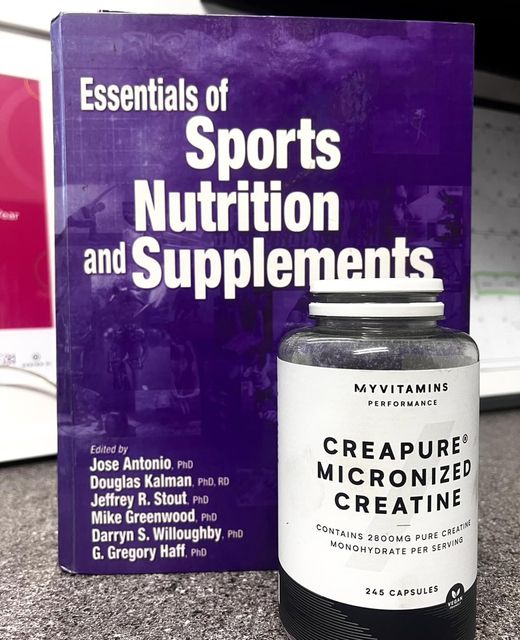It’s among the most well-researched supplements out there. It can help with exercise performance and have possible cognitive benefits too.
What is it?
It’s made in the body, mainly the liver. It helps create a steady supply of energy in your muscles so they can keep working, especially while you’re exercising.
You can get it from protein rich foods like fish and meat. It can also be bought in capsule or powder form.
Why take it?
The main benefit of creatine is an improvement in strength and power output during resistance exercise. It’s most commonly taken by people who lift weights or need short, intense bursts of energy. In real terms, this could be the difference in an extra rep or two at the end of your bench pressing set. Small gains like this can add up over time to improvements in strength or lean mass. It can also help aid recovery after short bursts of energy such as sprinting.
In terms of brain function, it may help reduce mental fatigue, particularly in highly stressful situations involving sleep deprivation or exercise to exhaustion. It may also be helpful in older people who suffer from memory loss or people who lack creatine in their diet such as vegans.
Downsides
When you take extra creatine on board, it’s likely that you’ll retain more water. This can lead to an upset tummy, a dose of the runs or simply feeling bloated amongst other things.
How to take it
The most common creatine supplement is creatine monohydrate. It’s the cheapest and most researched. It can be supplemented through a loading protocol. Message us if you want the protocol (always consult your doctor before taking any new supplements).
In conclusion, it seems the positives outweighs the negatives if you’re a regular gym goer or athlete. However, if you’ve a fat loss or strength gain goal, before even considering taking creatine, we’d recommend ensuring you’re getting adequate sleep, your nutrition is on point, you’re training consistently, otherwise it’ll be as useful as the chocolate teapot!

